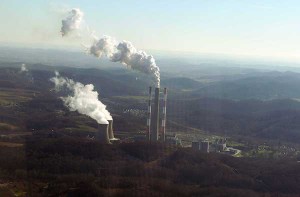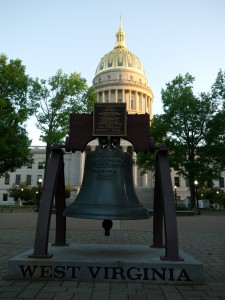
 More updates added Monday morning.
More updates added Monday morning.
News: DEP concerned about flexibility on EPA’s power plant rules
The WV Sierra Club’s / WVEC’s Fact Sheet on HB 2004 is here.
Check out WVEC’s call to action here.
When making your comments at the public hearing you may want to bring up the point that WVCAG makes here:
Citizens’ Concerns Must Not Matter in House Judiciary
Please come to the Public Hearing on HB 2004 on Monday, February 2 at 5 p.m. in the House Chamber at the WV State Capitol.
HB 2004 is “aimed at ensuring legislative control over any state compliance plan the DEP draws up once the U.S. Environmental Protection Agency” finalizes the Clean Power Plan (CPP). CPP is supposed to reduce carbon dioxide emissions from existing power plants.
Earlier, (see below) we blogged about HB 2004. On Friday, the Judiciary Committee revised the bill, but the new version still has problems, including:
- The revised bill still requires DEP to get legislative approval before submitting a plan for West Virginia to comply with EPA’s CCP. While legislative approval of rules is routine, requiring legislative approval before a rule can even be submitted to EPA needlessly delays the process, and injects unwise political pressure into the plan. Imposing needless delays increases the risk that EPA will impose a federal plan, without considering West Virginia’s unique circumstances.
- The revised bill still strikes important language on energy efficiency. Energy efficiency is the cheapest cleanest, safest and fastest way to reduce air pollution from power plants. It creates jobs and benefits consumers.
- The revised bill requires DEP to consider “non-air quality health” impacts. As this is phrased, a back injury during construction is a health impact, but heart disease, emphysema, or childhood asthma, all of which are exacerbated by air pollution, would not be considered. We think that all health impacts should be considered, and we believe that these words were added because the EPA rules are justified based on their health benefits alone. By only considering “non-air quality” health impacts, any proposed state plan would likely allow more pollution.
A Public Hearing on this bill is scheduled for Monday, February 2 at 5 p.m. in the House Chamber. Please try to attend. If you cannot be there in person, please call or e-mail your House of Delegates members and ask them to scrap HB 2004.
Here are some points you may want to make in your comments. HB 2004 should be scrapped because:
- This bill imposes needless delays in the DEP’s submission of a CPP compliance plan to the EPA.
- This bill damages state efforts toward energy efficiency. Energy efficiency measures in homes and businesses help West Virginians make ends meet. Despite electric rates that are currently lower than other states, West Virginia families have higher than average electric bills.
- This bill fails to require DEP to consider air quality-related health impacts in implementation of CPP.
- This bill makes it more difficult for West Virginia to address climate change. We need to do all we can to promote energy efficiency and renewable energy. Even the West Virginia Coal Association has said all the easily mine-able coal has already been mined. On January 16, in an article titled, “In U.S., there are twice as many solar workers as coal miners,” Fortune magazine reported that more than 31,000 new solar jobs were created in the U.S. in 2014 bringing the total to 173,807 — a 21.8 percent increase in employment since November 2013. West Virginia needs to recognize that.
Here’s the earlier blog post, with some background information on CPP:
HB 2004 / SB4 is now before the WV State Legislature. The bill is “aimed at ensuring legislative control over any state compliance plan the DEP draws up once the U.S. Environmental Protection Agency” finalizes the Clean Power Plan (CPP). CPP is supposed to reduce carbon dioxide emissions from existing power plants.
The bill, as it was written Friday morning, would forbid the Department of Environmental Protection (DEP) from submitting a plan to the EPA to address climate change through renewable and energy efficiency, or even “natural” gas (not that we think “natural” gas, which consists mostly of methane, can stave off climate disruption issues, nor do we think communities should be subject to the assorted assaults that come with deep shale gas extraction and waste disposal). This will inevitably result in the EPA rejecting the state’s plan and instituting its own plan, which may not be customized for West Virginia’s unique energy landscape.
This coming Monday, February 2 at 5 p.m., the House Judiciary Committee will hold a public hearing on the bill. We need you to attend the hearing and publicly speak out in opposition to HB 2004. Join us for the hearing in the House Chamber at the State Capitol.
Here are some things you could bring up when delivering your comments:
- Energy efficiency in homes and businesses will help West Virginians make ends meet. Despite electric rates that are currently lower than other states, West Virginia families have higher than average electric bills.
- We must do all we can to limit climate change. It’s smart to do all we can to promote truly cleaner renewable energy. Even the West Virginia Coal Association has said all the easily mine-able coal is has already been mined. On January 16, in an article titled, “In U.S., there are twice as many solar workers as coal miners,” Fortune magazine reported that more than 31,000 new solar jobs were created in the U.S. in 2014 bringing the total to 173,807 — a 21.8 percent increase in employment since November 2013. West Virginia needs to recognize that. The renewable market is not waiting on policy, and in facts is growing in leaps and bounds despite policies designed to thwart that growth.
- HB 2004 should not limit how the DEP can create a plan for West Virginia only hurts West Virginians. We should be allowed to create our own plan for addressing climate change, not have the federal government create our plan for us.
We hope to see you at the hearing! Again, please check back here for updates.
Background info:
The EPA has proposed regulating existing power plants to address climate change, called the Clean Power Plan (CPP). Under the CPP, states can come up with their own state implementation plan, by addressing climate change using four building blocks:
- More energy efficient power plants,
- More electricity from low-carbon-dioxide-emitting “natural” gas (OVEC note: healthy communities and deep shale gas drilling and waste “disposal” activities cannot co-exist. “Natural” gas (which is mostly methane) is not a viable solution to climate disruption),
- More electricity from renewable energy, and
- More “demand-side” energy efficiency in homes, businesses and industries.
As it was written Friday morning, HB 2004 would restrict West Virginia to complying with CPP only by increasing efficiency at power plants, leaving out the other building blocks. The bill also requires the DEP to report to the Legislature on the feasibility of meeting the goals of the CPP, once the final EPA rules are released this summer. A feasibility report is fine, but the government should not limit our options in complying with the law. Energy efficiency is good for all of us! And we sure do want to derive more of our electricity from renewable energy.









You probably won’t get many comments on this Bill because it is so clearly absurd. To mandate that a proposal to cut greenhouse gases be specifically forbidden to include natural gas, renewable energy, or most ridiculous of all, ENERGY EFFICIENCY, is too unbelievable to appear in an “Onion” article. I feel sure that West Virginia’s legislators, from either side of the aisle, will stop this bill and prevent our Great State of West Virginia from appearing in National News spots as a laughing stock.
Richard you must not be paying much attention to some of the other bills this House and Senate have introduced… If the folks think one Coal job might be saved they are voting for a bill… it is SAD!!!